U-M Student Opportunities
Funding & Training
CEO empowers U-M student organizations and leaders through Project Inspire (PI). Project Inspire supports U-M student organizations that provide educational experiences for K-12 youth through funding and free interactive training.
Project Inspire is right for your group if:
- Your student organization wants to INFORM through activities designed with a DEI lens.
- Your student organization wants to ENGAGE a diverse K-12 student group by building positive relationships.
- Your student organization wants to INSPIRE a new generation of students to see themselves in a college setting.
All organizations must be recognized as Sponsored Student Organizations (SSO) or Volunteer Student Organizations (VSO).
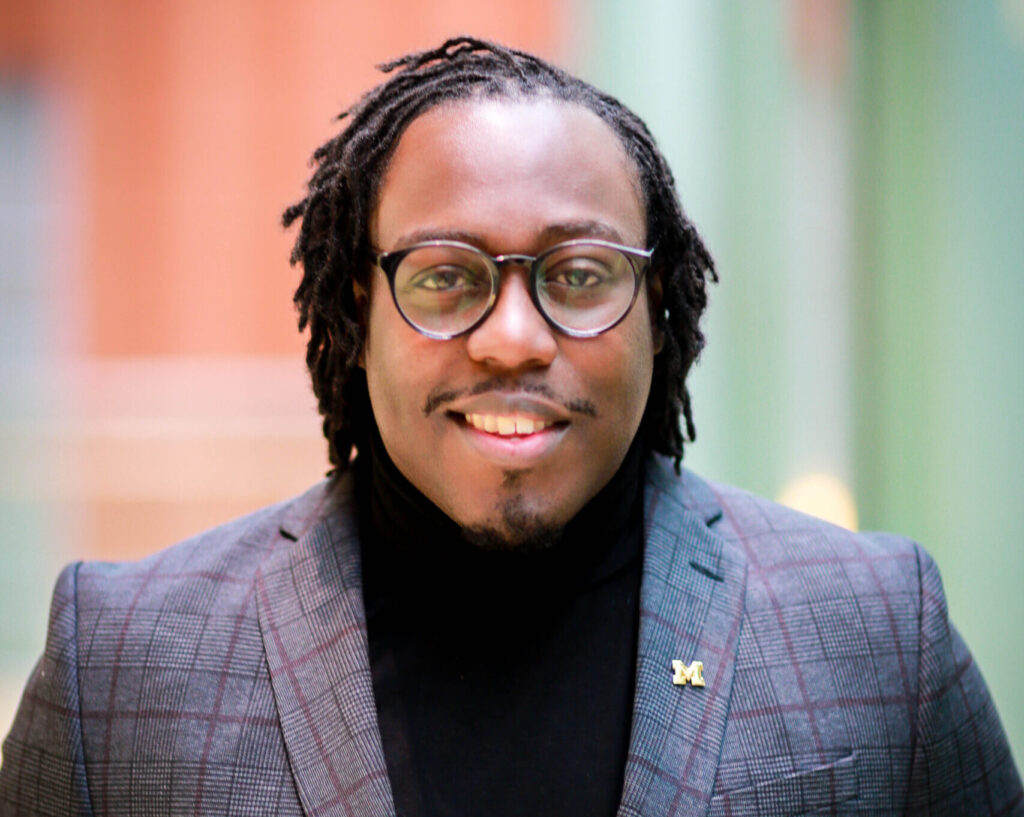
Dyrel Johnson
Senior Program Manager- (734) 647-1402
- [email protected]
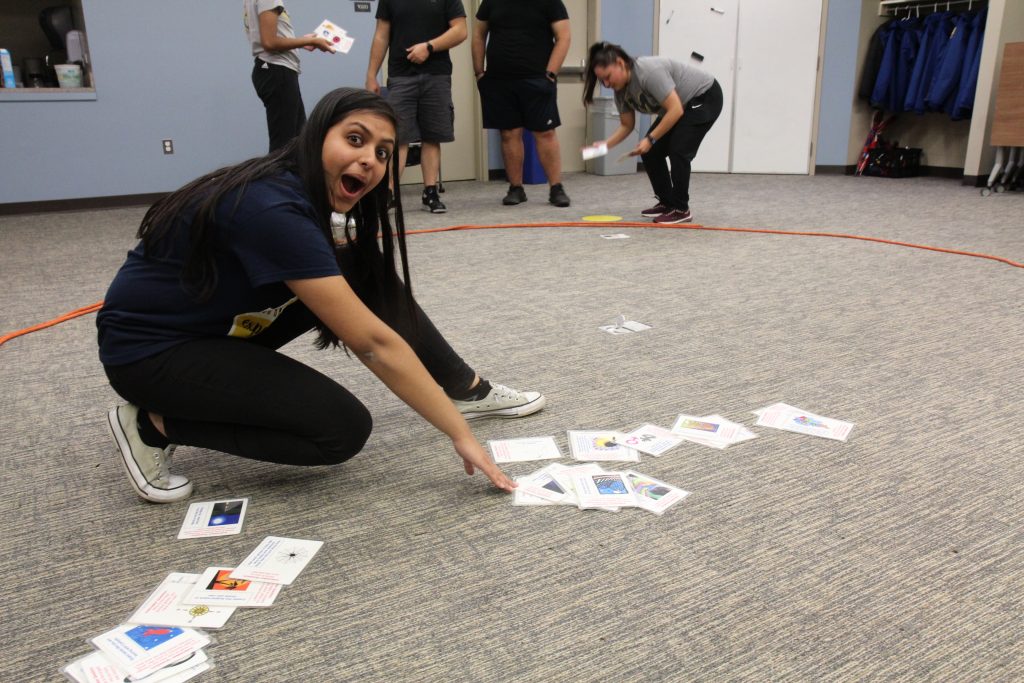
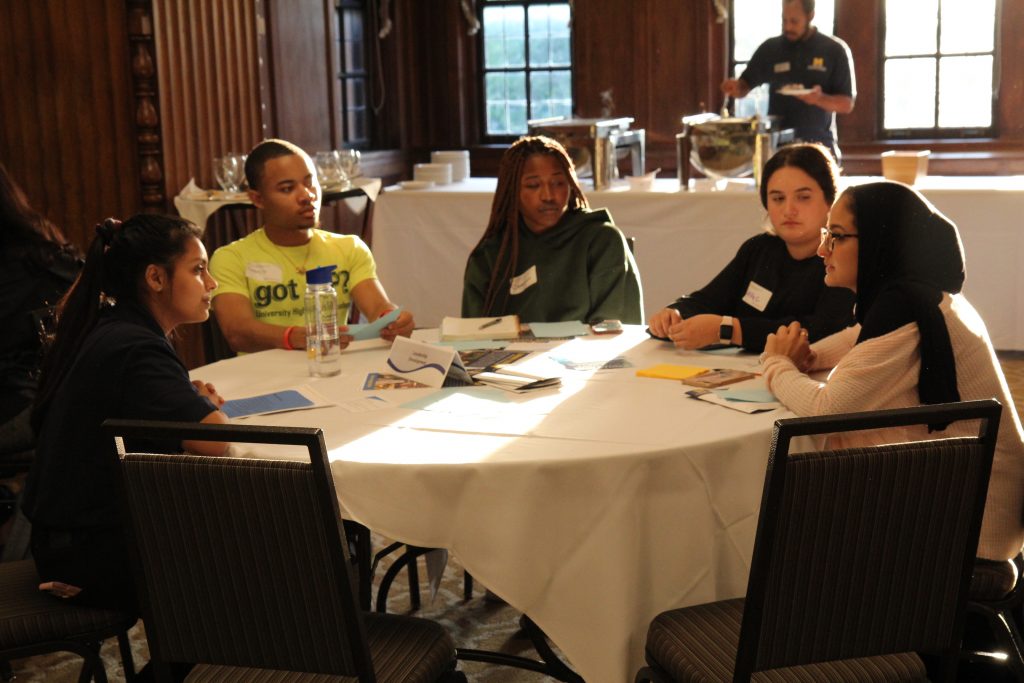
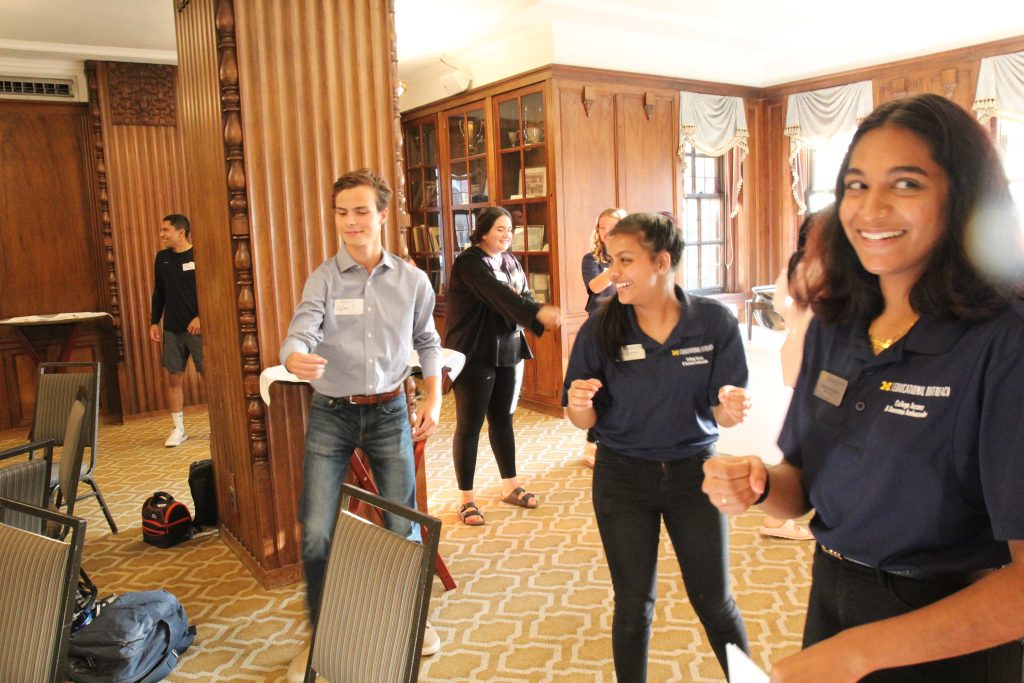
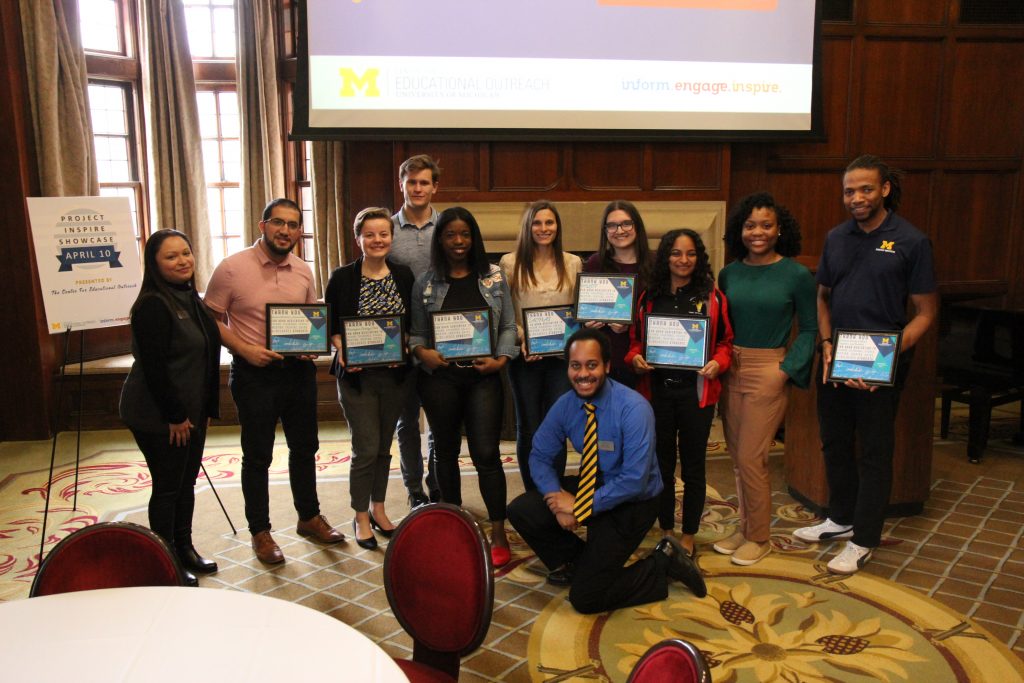
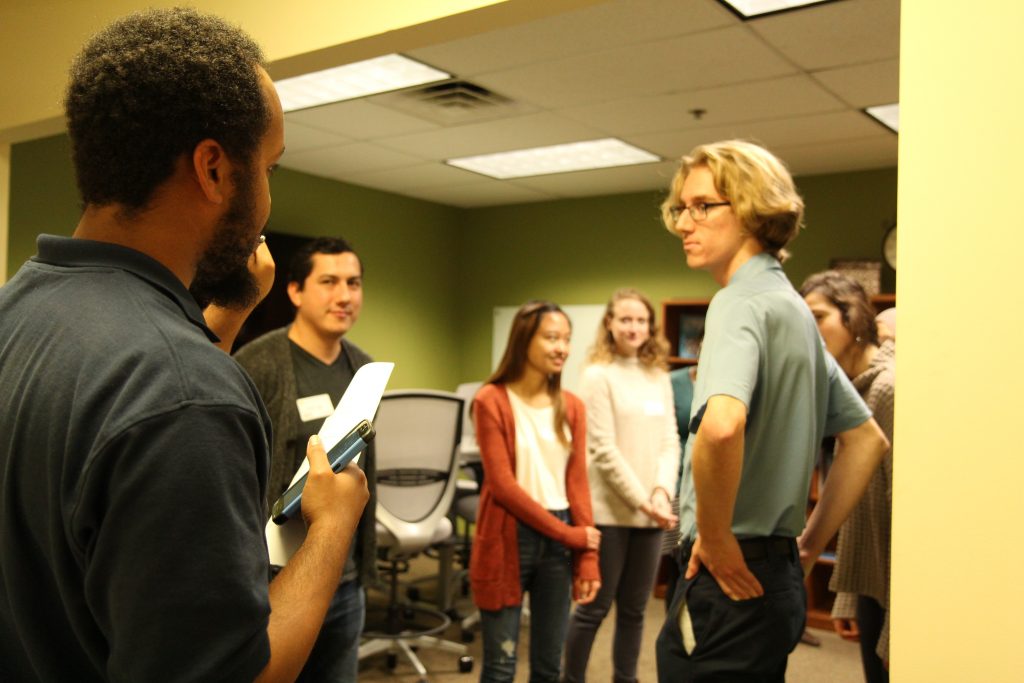
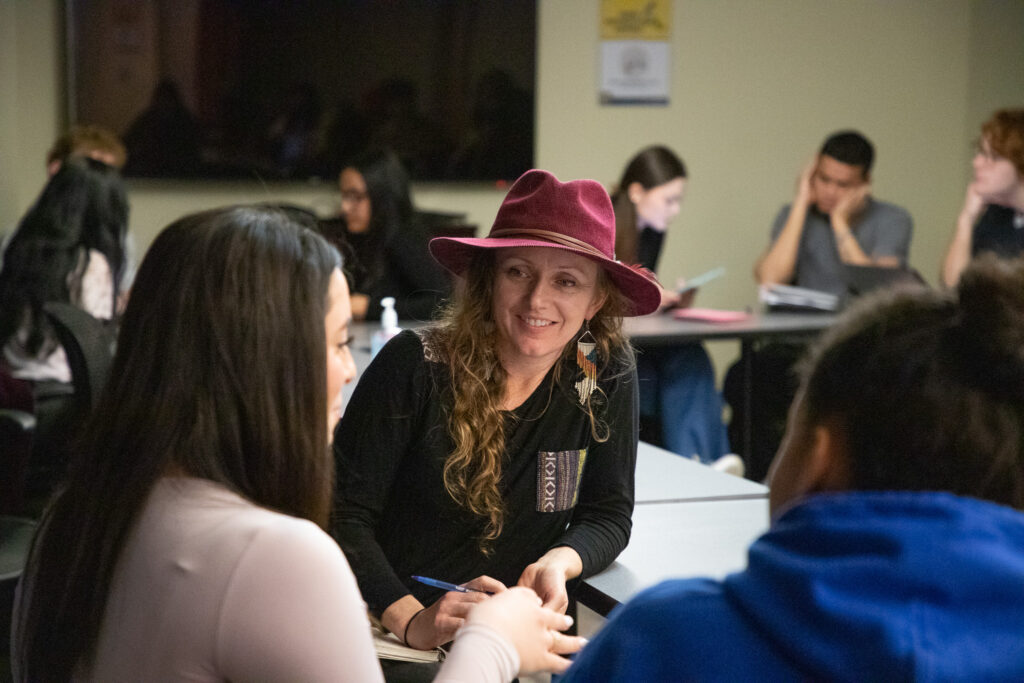
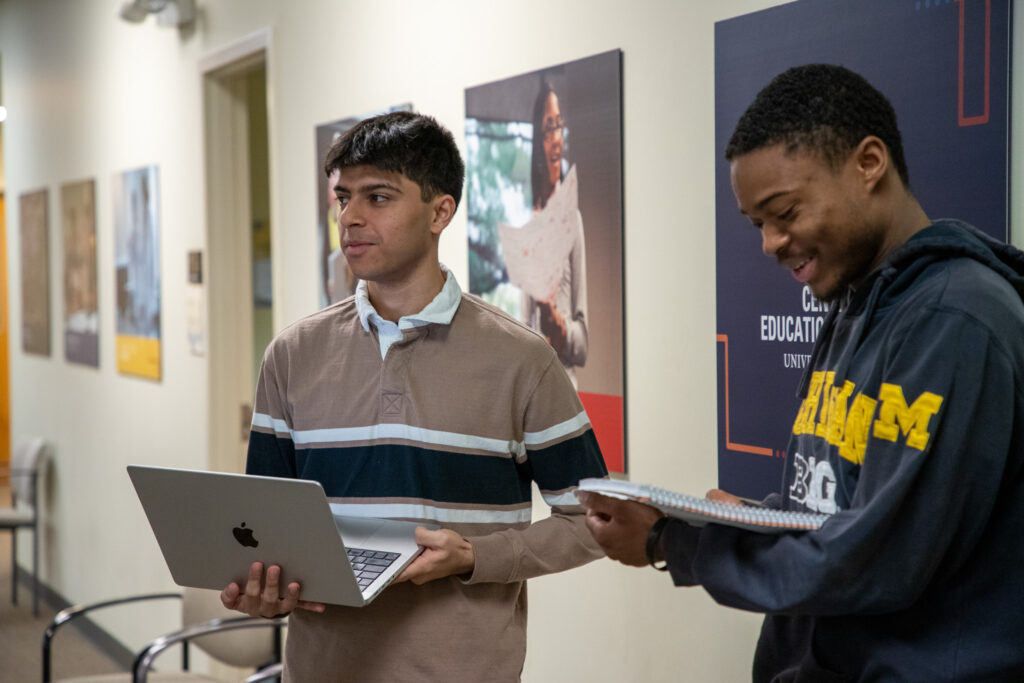
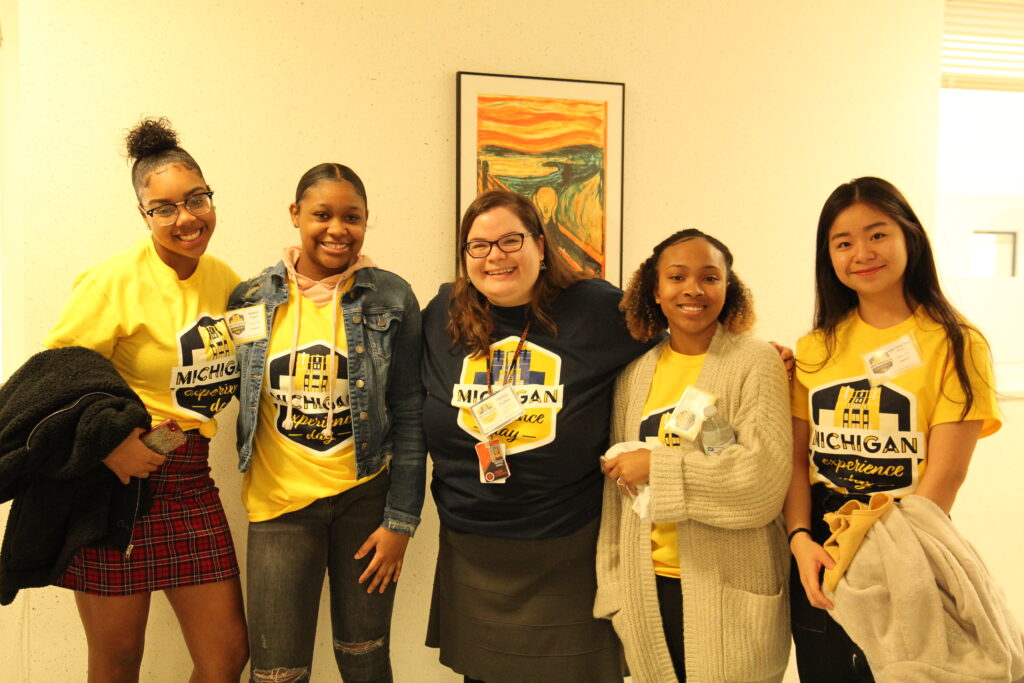
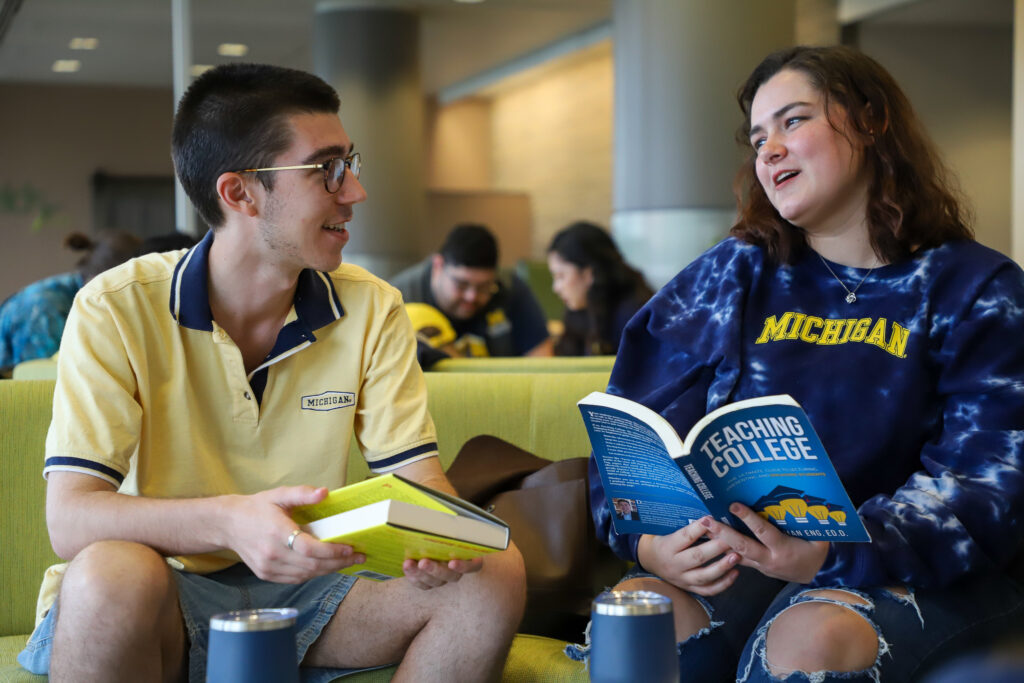
Examples of Previously Approved Grant Awards
CEO collaborates with student organizations to assess the best options for the PI grant to fund. Below are some examples of previously approved items that CEO sponsored for various student organization activity with K-12 students:
- Lunch at a dining hall for the K-12 students
- Bus transportation from a school location for all K-12 students
- Program materials for student participants, such as journals, pens, bags, and water bottles
- Sponsor the fee of a speaker with strong DEI expertise to speak with the student participants
- Engagement activities fee
What Training Sessions Are Available to U-M Students?
With an emphasis on building practical skills for developing and implementing outreach programs, the Project Inspire training sessions will provide engaging scenarios and resourceful information to enhance outreach programs for diverse populations.
Participants will:
- Identify, structure and shape their personal/organizational story to positively impact their work.
- Utilize their story to guide the search for the right school/community partner.
- Understand how their own biases can color the perceptions of others.
Participants will:
- Identify how to approach partnerships with a customer service mindset by putting their needs first.
- Understand how to use clear and concise messaging when communicating program ideas/resources to the school/community partner.
- Learn how to identify bi-directional benefits for their organization and their school/community partner.
Participants will:
- Connect current practices to the CRAVE model to create dynamic and engaging outreach programming.
- Improve adapting and responding skills during times of program uncertainty.
- Learn how to create a respectful learning environment, as opposed to an authoritative one grounded in Strength-based ideology.
Participants will:
- Demonstrate understanding of all 5 leadership styles and when to switch between each style in a given situation.
- Recognize when and why one should delegate various roles/responsibilities.
- Learn five strategies that can help create effective, realistic and measurable team goals.
Participants will:
- Learn various assessment methods on how to gather feedback from stakeholders to inform future programming efforts.
- Design a succession plan for student leadership transitions, with a focus on guiding partner sustainability efforts.
Center for Educational Outreach
- 1214 S. University Ave, Ann Arbor, MI 48104
- [email protected] | (734) 647-1402
- Supported by the Office of Diversity, Equity & Inclusion
